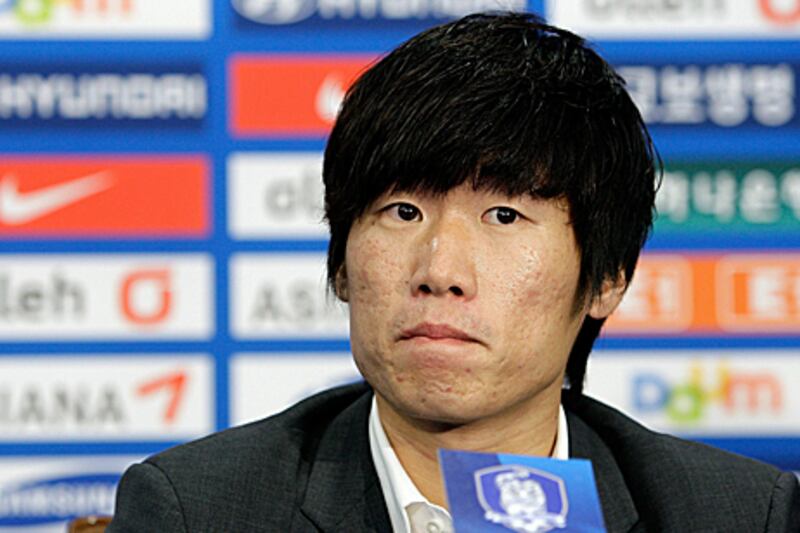SEOUL // Manchester United midfielder Park Ji-sung of South Korea today formally announced his retirement from international football.
The South Korea captain, who won his 100th cap in last week's Asian Cup semi-final loss to Japan in Doha, said chronic knee injuries have forced him to retire and make way for younger teammates.
Park, 29, said he expected to play club football for another three to four years.
"It was a great honour and point of pride to play for the national football team," Park told a packed news conference in Seoul.
"Above all, I would like to make way for teammates who have been making remarkable progress," he said. "If there were no injuries, I could have continued my national team career as physically difficult as it is. However, I have no choice but to retire under the current situation."
Park singled out Son Heung-min of Hamburg SV and Kim Bo-kyung of Cerezo Osaka as promising players who can fill the gap.
Park, one of Asia's most successful football players, became the first South Korean to play in a Champions League final when Manchester United lost to Barcelona. He has also won three Premier League titles and three League Cups with the English club.
Park was a key member of the South Korean national squad that advanced to the World Cup semifinals in 2002 on home soil - the best performance by an Asian team in football's premier event. He went on to play in the 2006 and 2010 World Cups.
"The happiest moment in my life was when I heard I was selected as a member of the national team," he recalled. "The 2002 World Cup was also really a happy moment."
Asked about when he expected to quit football entirely, Park said: "I haven't decided what year I'll quit. I think I can play at least three to four more years."





